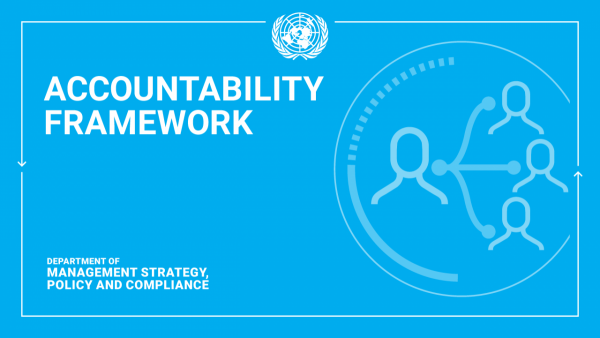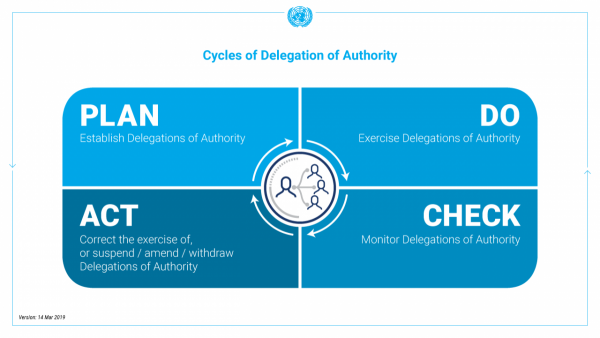On 30 September 2025 the Secretary-General signed the fifth iteration of the statement on internal control for all operations of the Secretariat for 2024.
- عربي
- 中文
- English
- Français
- Русский
- Español

A key pillar in the Secretary-General’s vision for a new management paradigm is a revised framework for delegation of authority. This framework emphasizes transparency, accountability and decision-making that is closer to the point of mandate and programme delivery. Delegation of authority will be guided by a simplified policy framework, with the Staff Regulations and Rules and the Financial Regulations and Rules as two of its most critical components. The scope of delegated authorities includes budget and finance, procurement, property management and human resources.
To monitor the exercise of delegated authority, an accountability framework has also been established. Built on the principles of results-based management, it will enable heads of entity to demonstrate that they are exercising their delegated authority in a transparent, responsible and accountable manner. The framework will also allow the Department of Management Strategy, Policy and Compliance (DMSPC) to monitor the system globally and to ensure consistent measurement across the Secretariat. Together with the Department of Operational Support (DOS), DMSPC will support managers in the exercise of their authority. To foster continuous improvement and to build capacity, the Business Transformation and Accountability (BTA) Division will take the lead in DMSPC to enable delegation of authority and the accountability framework.

As illustrated in the diagram, the four continuous phases in the cycle of delegation of authority are: plan, do, check, and act.
The monitoring by BTA will rely on data and analytics that will inform the guidance provided in a constant feedback loop to foster continuous learning and improvement and to offer a more holistic view of performance. The business data for each entity will be also made available to those entities, including through dashboards, to support internal management and decision-making. BTA will help enable the culture of transparency and accountability essential for the more effective and efficient United Nations envisioned by the Secretary-General.